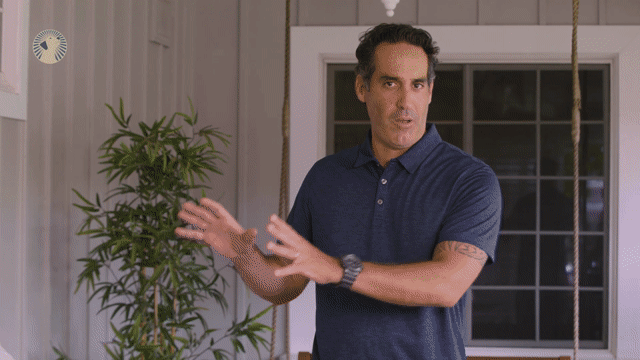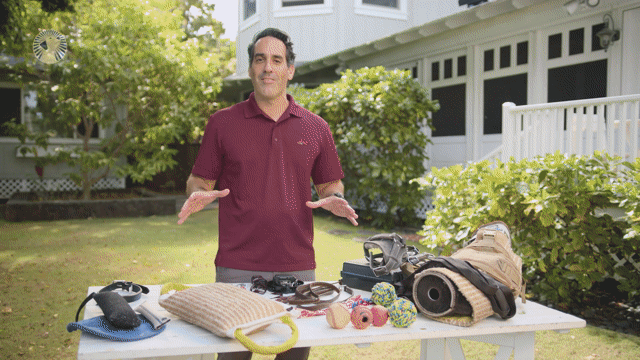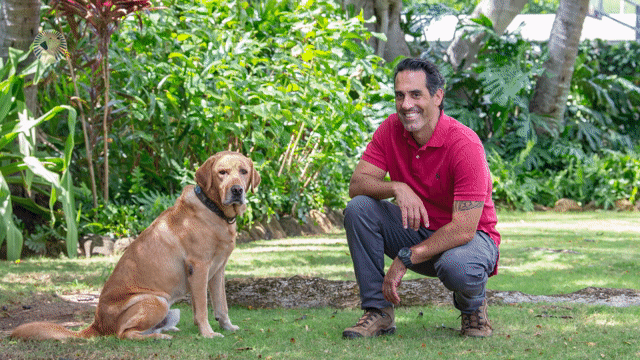How Can I Stop My Dog from Digging in the Yard?
Dogs digging up your yard is one of the most frustrating problems dog owners can face. The reasons why dogs dig may be different. Some might be bored and want to play or explore, while others might be seeking moisture because it's hot outside and your yard is dry and hard.
Digging can be dangerous for dogs, exposing them to harmful chemicals and insects if your pet digs near the house or in garden beds. It can also leave unsightly holes where your dog tries to bury its treasures.
As Daniel explains:
"Well, there is no way to specifically teach your dog to stop unless you are able to catch them in the act. But, there's nothing guaranteeing they won't do that when you're not around."
Additionally, while products aimed at deterring dogs from destroying things may be helpful during the training process, they are not a substitute for proper dog training and mental stimulation. Therefore, they should be used only as tools, and not relied upon exclusively as a magic fix for destructive behavior.
Common Reasons Why Dogs Dig
It may not be obvious at first, but the first step is to determine why your dog is digging. Some dogs are more likely to dig if they are bored, others might be trying to escape their kennel or engage with other animals. If you notice certain conditions where your dog digs frequently, be sure to look for ways to adjust the environment.
1. Boredom
Many dogs are prone to digging if they are kept inside for extended periods of time or confined to a small area, such as a kennel or crate. If your dog is not provided with adequate mental stimulation, you might find holes all over your yard or teeth marks on the crate. Dogs that are mentally stimulated in positive ways are less likely to engage in destructive behaviors.
2. Attention Seeking
Some dogs are very persistent when it comes to receiving attention from their owners, even if that means resorting to destructive acts like digging up your yard. A dog's sense of smell is far keener than humans, with some dogs capable of sniffing out potential buried treasures in your yard. If you find dogs are prone to digging in one area, that's a good place to start looking for clues.
3. The Moisture Factor
Dry, arid climates can lead to dogs seeking out moist areas in your yard to nestle in. If dogs are able to dig an area with adequate moisture, they can burrow down and stay cool in the summer heat. Typically, dogs will only dig during the warmest part of the day unless they are seeking out water to drink.
4. Escape from Confinement
Some dogs might dig under a fence or nearby objects if their area is not secure enough for them to move about freely. In some cases, dogs may try to escape from a kennel or crate due to being inadequately confined. If your dog has been known to dig out of a kennel, you should increase the strength and durability of their enclosure before they can cause any more damage.
5. Burying Items
Dogs have a natural instinctive desire to bury items and keep them away from the view of other animals. Sometimes, dogs will dig up long-buried bones or toys and bury them again in a different location.
If your dog is digging regularly in one particular area, it may be for one of these reasons. Try to determine why your dog is digging before you can start looking for a solution.
How to Prevent Digging Behavior
So what's a frustrated owner to do? First and foremost, you need to get comfortable with the idea of training your dog to be comfortable with being contained. Young dogs especially are just naturally prone to getting into mischief and destructive behavior patterns. To give yourself the best chance at preventing this behavior from becoming a problem is to crate train early on and contain them when you're not around.
Additionally, the basic fundamentals of good dog ownership apply here:
- Exercise
- Discipline
- Structured obedience training
- Structured lifestyle
- Lots of collaborative mental stimulation
So, there is no easy way, no secret to stop your dog from digging in the yard. It takes lots of investigation, monitoring, and work. Most dogs that get all of their needs met do not engage in destructive behavior. So, if you're dog is digging, there's a good chance it just needs something to do.
Useful Ressources

Introducing a New Dog to Your Life
Introducing a new dog into your household can be stressful. Learn how to set the right framework for success before, during, and after introducing your pup!

Key Training Tools and Gear
As a dog trainer, you need the right tools to make training your dog easier. Learn how to choose the best dog training tools and gear for training sessions.

Problem-Solving Theories
Learn how to correct dog behavior problems (including food possessiveness and aggression) in order to make your life with a dog so much easier.

Introduction to The Beacon Dog Training Course
Looking for a practical, easy-to-understand online dog training course that will translate into positive results? Try Daniel's step-by-step approach.

The Basics of Dog Psychology
You love your dog, but do you really know what your pup is trying to tell you? Most people don't. Dogs have a complex language of their own, and if we want to learn how to communicate with them on a deep level, we need to understand this language better.